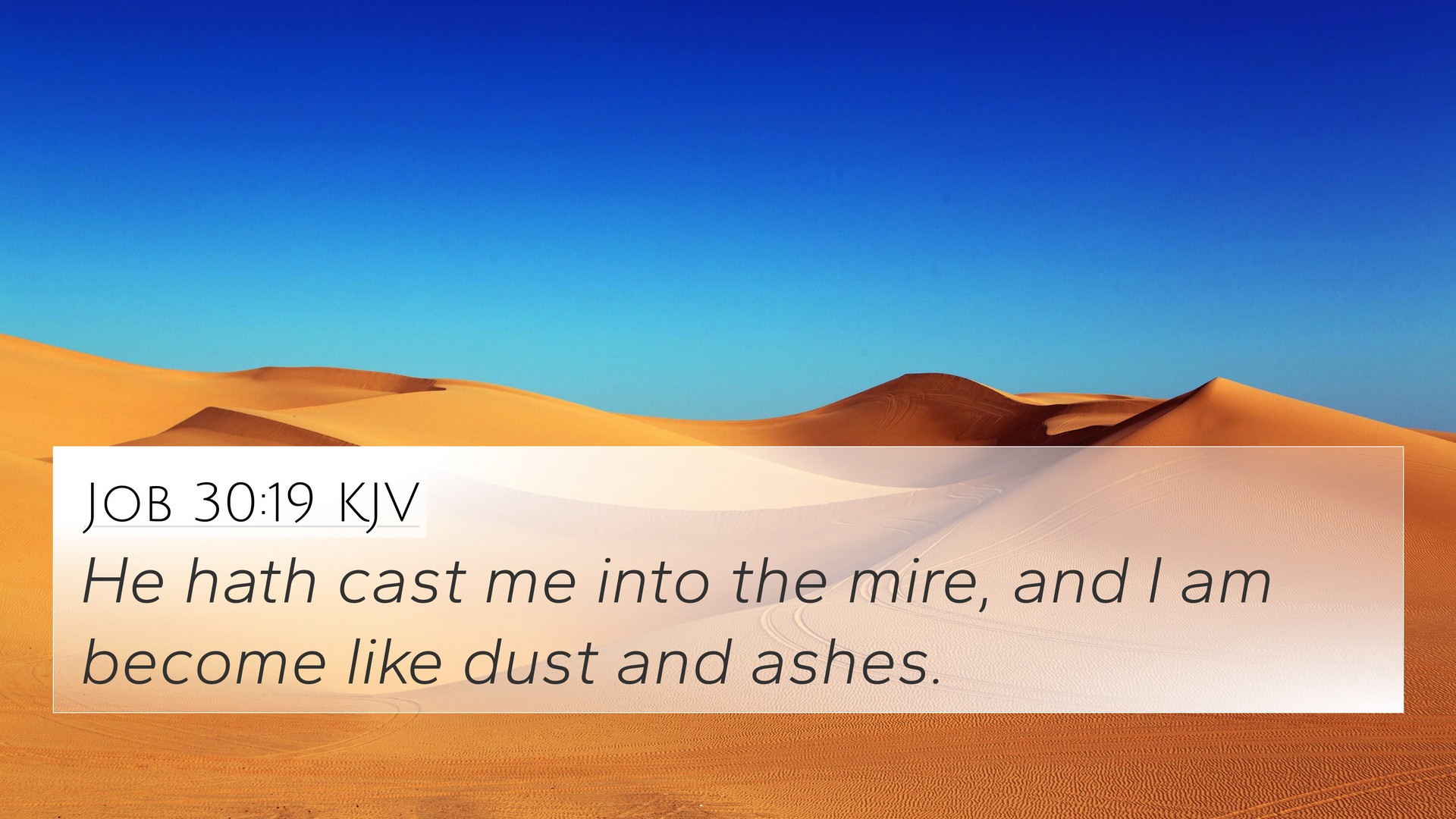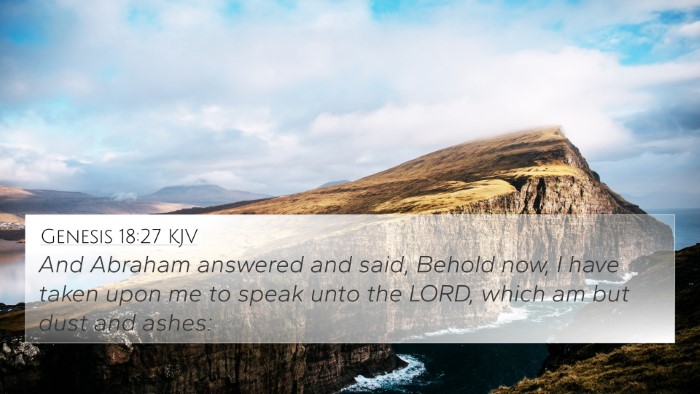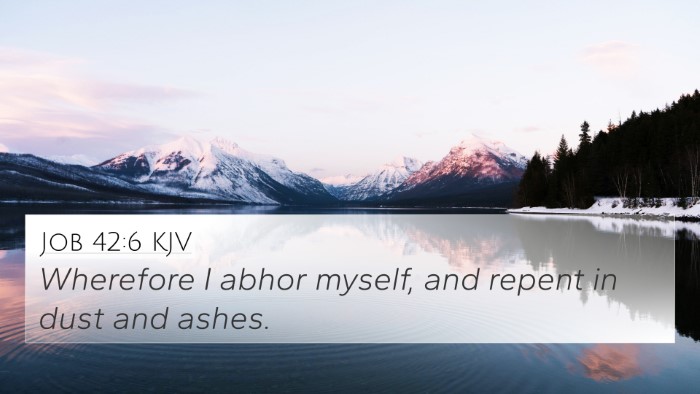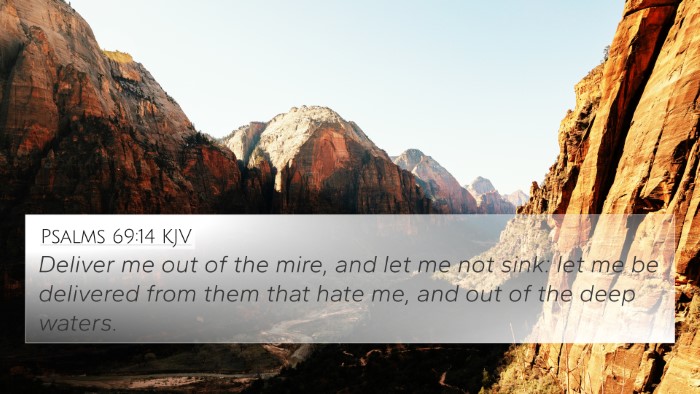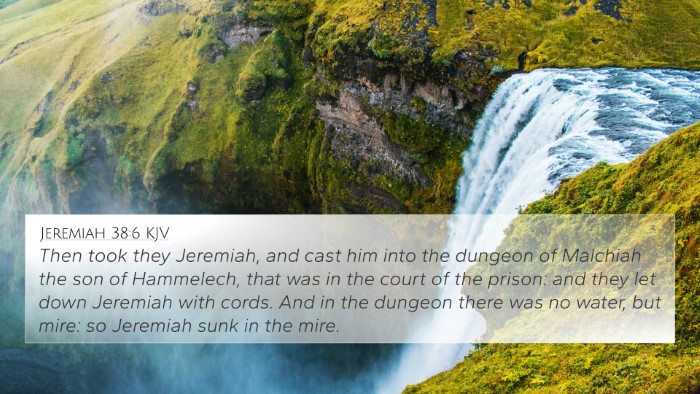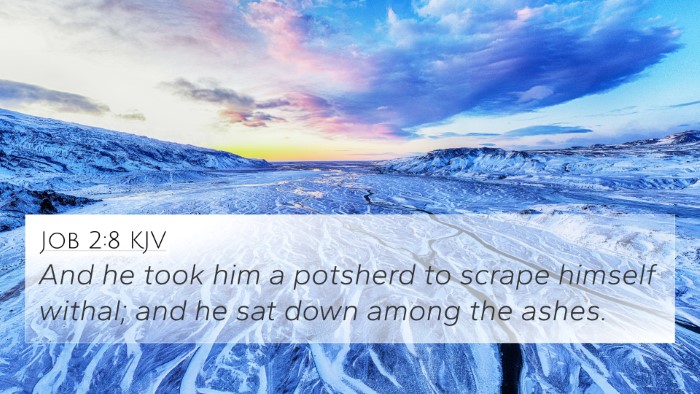Understanding Job 30:19
Verse: Job 30:19
Meaning: This verse expresses Job's profound sense of abandonment and sorrow. He feels that God has distanced Himself from him, allowing suffering to engulf his life, likening his circumstances to being cast into the dust and feeling like a target of God's wrath.
In this solemn reflection, Job confronts the reality of his suffering and the seeming silence of God. This deep despair leads to a quest for understanding God’s purpose amidst suffering, a theme that resonates throughout the Bible. Job's plea underscores human vulnerability when faced with undeserved suffering and the struggle to comprehend divine plans.
Commentary Insights
Insights gleaned from public domain commentaries provide a richer context for this verse:
-
Matthew Henry: Job speaks of his plight as being reminiscent of the dead, with God appearing to leave him to his fate. He interprets his condition as a divine abandonment, which showcases the extremity of his distress.
-
Albert Barnes: In his analysis, Barnes highlights the metaphorical language Job uses. Referencing the literal act of being cast into the dust, Barnes illustrates how Job perceives God’s actions as being actively punitive rather than absent.
-
Adam Clarke: Clarke suggests that Job's metaphor serves to depict the depth of his suffering. He emphasizes the spiritual disconnect Job feels, indicating a theological struggle between perceived abandonment by God and the belief in God’s omnipresence.
Key Themes
The primary themes found in Job 30:19 include:
- The Silence of God: Job’s lamentation reflects the feeling of divine silence in times of distress.
- Human Suffering: The verse introduces a critical examination of the nature of suffering and its relationship to faith.
- Divine Justice: Job's questioning highlights the struggle to reconcile personal suffering with the concept of a just God.
Related Bible Cross-References
Here are some significant Bible verses that offer connections and parallels to Job 30:19, enriching our understanding of its themes:
- Psalms 22:1: "My God, my God, why have you forsaken me?"
- Psalms 42:9: "I say to God my Rock, 'Why have you forgotten me?'"
- Psalms 139:7: "Where can I go from your Spirit?"
- Isaiah 45:15: "Truly, you are a God who hides himself."
- Lamentations 3:8: "Even when I cry out or plead, he shuts out my prayer."
- Matthew 27:46: "My God, my God, why have you forsaken me?"
- Hebrews 13:5: "I will never leave you nor forsake you."
Connections between Bible Verses
This section explores the thematic links and comparative analysis between Job 30:19 and other verses, aiding in a more profound theological study:
-
The Silence of God: Both Job 30:19 and Psalms 22:1 showcase the agonizing cries of human despair, presenting a poignant inquiry into divine absence.
-
Mystery of Suffering: Job's lament is paralleled in the teachings of Ecclesiastes, where the author contemplates the futility and enigma of human suffering and life's unfairness.
-
Faith Amidst Trials: The New Testament echoes Job's experience through the teachings of James 1:2-4, which encourage believers to find joy in trials, arguing for a purpose beyond present suffering.
Tools for Bible Cross-Referencing
To delve deeper into scripture connections and the theological implications of Job 30:19, the following tools can be valuable:
- Bible Concordance: Helps locate every occurrence of a specific word or theme, aiding in comparative studies.
- Bible Cross-Reference Guide: A resource that facilitates the exploration of related scriptures, enriching one's understanding.
- Cross-Reference Bible Study: An approach combining multiple scriptures to draw broader conclusions about themes and doctrines.
- Comprehensive Bible Cross-Reference Materials: Includes online databases and printed guides that collate scriptures based on thematic relevance.
Inter-Biblical Dialogue
Job 30:19 invites a profound dialogue across the scriptures, linking the trials of Job to the experiences expressed by prophets and apostles:
- Old and New Testament Insights: The pain of Job echoes throughout scripture, connecting with the lamentations in the Psalms as well as the suffering of Christ.
- Thematic Consistency: The themes of suffering and divine silence appear consistently, fostering robust theological discussions across the canon.
Conclusion
Job 30:19 serves as a reflective passage on suffering, divine silence, and the profound questions it raises regarding faith. By studying related verses and utilizing cross-referencing tools, one can uncover the rich tapestry of biblical theology that surrounds this poignant expression of human desperation. This verse encourages readers to explore their own questions of faith amidst trials, while also reminding them of the overarching narrative of God’s presence throughout scripture.
